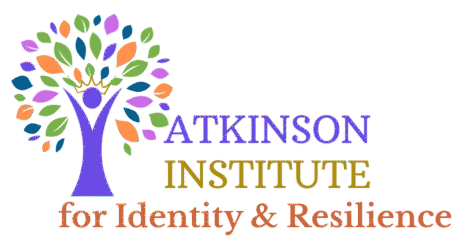Navigating Imposter Syndrome in Remote and Hybrid Workspaces: Empowering Your Virtual Self
You log in for another day of remote work, but the nagging voice of imposter syndrome whispers, “Are you sure you’re good enough?” You’re not alone. In virtual work environments, it’s easy to feel isolated and unsure, but there’s a path to reclaim your confidence. This blog will guide you through practical steps to overcome self-doubt and empower your virtual self. Ready to transform uncertainty into strength? Join our community and discover how to thrive in remote and hybrid work settings. Learn more about addressing imposter syndrome in remote roles here.
Understanding Imposter Syndrome

Understanding the nuances of imposter syndrome in remote and hybrid work environments is crucial. This section explores how this self-doubt manifests virtually and the unique challenges faced due to isolation.
The Virtual Self-Doubt Experience
Imposter syndrome is a psychological pattern where individuals doubt their accomplishments and fear being exposed as a “fraud.” In remote work settings, this self-doubt can amplify. The lack of direct feedback and face-to-face interactions often leaves remote workers questioning their contributions. Virtual work environments can sometimes feel like echo chambers where self-doubt thrives.
Reports indicate that the absence of physical cues and immediate validation can exacerbate feelings of inadequacy. Learn more about how remote teams manage imposter syndrome here.
-
Online communication lacks non-verbal reassurance.
-
Delay in feedback can heighten anxiety.
-
Virtual achievements may feel intangible.
The virtual self-doubt experience is a shared struggle, making it essential to address these challenges strategically.
Challenges in Remote Work Settings
Remote work presents unique challenges that can contribute to imposter syndrome. Isolation from colleagues can lead to feelings of disconnection and self-doubt. The absence of in-person collaboration often results in communication gaps, fostering uncertainty about one’s role and effectiveness.
Research highlights that remote workers often grapple with blurred boundaries between work and personal life, which can blur professional accomplishments. Visit Fast Company for more insights on managing imposter syndrome in remote work.
-
Feelings of disconnection from the team.
-
Misinterpretation of digital communication.
-
Lack of immediate support or feedback.
Recognizing these obstacles is the first step toward creating solutions and support systems for remote workers.
Hybrid Work and Isolation
Hybrid work models combine the flexibility of remote work with the structure of office settings. However, they can also introduce a new layer of challenges related to imposter syndrome. The alternating environments might make workers feel they are not fully part of either world.
In hybrid models, employees might worry about being overlooked on remote days or feel out of sync with office dynamics. This can heighten feelings of isolation and self-doubt. Learn more about the impact of this dynamic here.
-
Struggles with adapting to fluctuating work environments.
-
Concerns about visibility and recognition.
-
Balancing remote and in-office expectations.
Addressing these issues is vital for fostering a supportive and inclusive hybrid work environment. 🌐
Strategies for Building Confidence

Building confidence in remote and hybrid work settings requires intentional strategies. This section offers practical steps to empower individuals and create supportive virtual spaces.
Practical Steps to Empowerment
Empowering oneself in a virtual work environment involves deliberate actions to overcome self-doubt and reinforce confidence. Here are practical steps to foster personal empowerment:
-
Set clear goals: Define specific, achievable targets to measure progress.
-
Seek feedback: Regularly request input from peers and supervisors to gain perspective.
-
Celebrate successes: Acknowledge and reward personal achievements, however small.
According to experts, consistent self-assessment and proactive learning can significantly boost confidence. These steps reinforce the belief in one’s capabilities and help mitigate the effects of imposter syndrome.
Implementing these strategies can lead to improved workplace empowerment and a more positive self-image.
Creating Supportive Virtual Spaces
Establishing supportive virtual spaces is crucial for mitigating imposter syndrome and building confidence. These environments encourage open communication and foster a sense of belonging.
-
Encourage team members to share experiences and challenges.
-
Use collaboration tools to facilitate real-time interaction.
-
Set up regular virtual meetings to maintain team cohesion.
According to research, supportive spaces can reduce feelings of isolation and promote well-being. Visit Golder Goldstein to explore more on creating inclusive virtual environments.
Focusing on connectedness and support helps build resilience against self-doubt and fosters a culture of empowerment.
Tools for Self-Assurance
Leveraging tools to enhance self-assurance is key to thriving in remote and hybrid work environments. These resources can help individuals maintain confidence and overcome imposter syndrome.
-
Journaling apps: Reflect on daily achievements and challenges.
-
Mindfulness tools: Practice meditation to reduce stress and anxiety.
-
Skill-building platforms: Enroll in courses to develop new competencies.
A strategic approach to using these tools can strengthen personal resilience and workplace empowerment. Consistent practice helps individuals build a robust sense of self-assurance, enabling them to tackle challenges with confidence. 💪
Community and Collaboration

Community and collaboration are indispensable for overcoming imposter syndrome. This section emphasizes the importance of joining networks and engaging with others.
Join Our Empowerment Workshops
Our empowerment workshops are designed to support individuals struggling with imposter syndrome in virtual work environments. These sessions provide practical tools and community support to foster confidence.
Participants gain insights from experts and share experiences with peers. Workshops focus on skill-building, mindfulness, and developing a resilient mindset.
-
Interactive sessions with expert guidance.
-
Peer support and shared experiences.
-
Practical exercises to build self-assurance.
Sign up today for our exclusive virtual workshop and receive a 20% discount! 💡
Building a Supportive Network
Creating a supportive network is essential for combating imposter syndrome. Building connections with like-minded individuals provides encouragement and shared learning opportunities.
-
Join online forums and professional groups.
-
Engage in mentorship programs.
-
Participate in networking events.
Connecting with others who understand your challenges builds a sense of community and belonging. This network becomes a source of strength and resilience in facing self-doubt.
Engage with Like-Minded Individuals 🚀
Engaging with individuals who share similar experiences and challenges can create a powerful support system. It fosters a sense of community and shared purpose.
-
Attend virtual meet-ups and discussions.
-
Collaborate on projects or initiatives.
-
Share insights and resources.
These interactions provide encouragement and validation, helping to dissolve feelings of isolation. By participating actively, individuals gain confidence and contribute to a collective mission to combat imposter syndrome. 🌟

